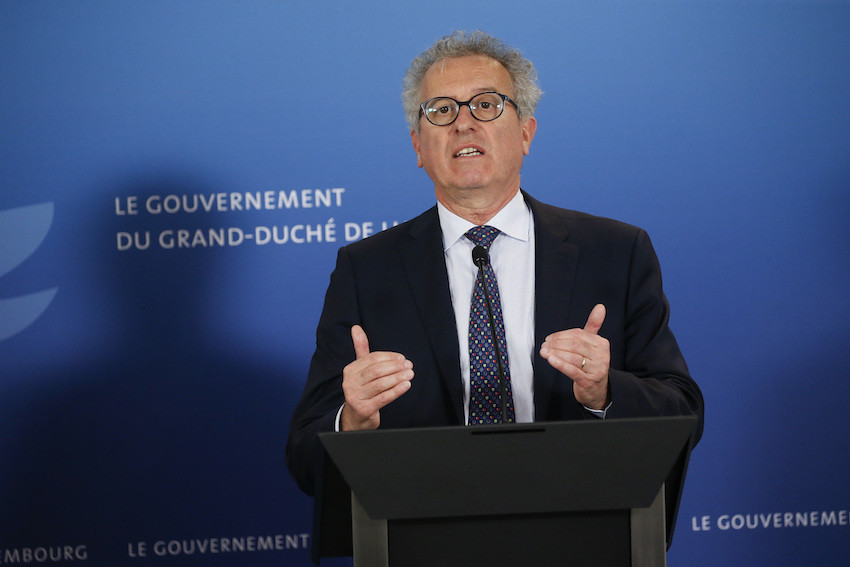Ministers outlined several forms of grants, guarantees and other financial measures, and laid on a bit of moral pressure, during a press conference on Wednesday evening.
The €8.8bn price tag included previously announced moves--such as exceptional family leave and delays in tax payments and social security charges--as well as new subsidies and loan guarantees.
Government debt
Pierre Gramegna, the DP finance minister, said the crisis spending was several billion euros in excess of the state’s recent budgets and well beyond its cash reserves. “It’s possible” the government will issue a new set of bonds. “The sums at play now add up to billions… we cannot absorb [those costs] except through debt.”
Later Gramenga said Luxembourg was in a good position to raise money on the global capital markets, given its AAA credit ratings and relatively low debt levels.
Gramegna also stated that the government will not press its pending tax reform until after the virus crisis passes.
Separately, Gramegna said that outside of the state schemes, six banks--BCEE, BGL BNP Paribas, Bil, Raffeisen, Banque de Luxembourg and ING--would offer smaller companies and the self-employed a moratorium on principle and interest payments on their loans.
Lex Delles, the SME minister, is seen speaking at a press conference outlining economic support measures, 25 March 2020. Photo credit: SIP/Julien Warnand
Aid for small businesses and freelancers
Lex Delles, the DP small and medium-sized business ministry, said Luxembourg’s 37,000 SMEs are facing a difficult moment. The country needs its retailers, artisans and freelancers now and after the crisis is finished, he said.
The smallest companies and freelancers would be eligible for a new €5,000 grant that does not have to repaid and will not be taxable. The grant is meant for firms like hairdressers and restaurants that were forced to close their doors on 18 March, he said.
The government is also drafting a bill on offering state loans (of between €12,500 and €16m) that will nominally need to repaid in 12 months. The loans could cover expenses such as rent and salaries. The self-employed would be eligible for 2.5 times the minimum wage to compensate for lost income. The concept has already been approved by the European Commission, but details of the programme will only be released next week.
Delles later said the €200m state aid scheme approved by the European Commission on Tuesday covered support for SMEs, not larger firms and freelancers, so the government would have to “see how the situation evolved.”
Franz Fayot, the economy minister, is seen speaking at a press conference outlining economic support measures, 25 March 2020. Photo credit: SIP/Julien Warnand
Public lending
Franz Fayot, the LSAP economy minister, said the government was undertaking the largest amount of economic aid ever mobilised in Luxembourg. The SNCI, the state investment bank, for example, will provide loans to companies and provide loan guarantees to keep banks lending, Fayot said on 25 March.
Partial unemployment payments
Fayot stated that the short-time working scheme (where the government covers 80% of salaries) had received more than 5,000 applications since the crisis started and he expected quite a few more requests to come in. He could not provide the percentage of applications that were approved or denied. The government will roll out an online application tool for companies (instead of submitting PDFs) in the coming days. The state will also switch from reimbursing companies for partial unemployment costs to advancing the funds.
Fayot said the objective of all these schemes was to preserve employment and support companies. The government will take additional action, if needed, after reviewing the situation in the coming weeks.
Bully pulpit
Gramegna encouraged all companies to pay outstanding invoices quickly. It was the responsibility of everyone, he said, to facilitate the flow of funds that ensures the economy keeps running.
Delles asked owners of commercial properties, as a gesture of solidarity, to be flexible about lease payments with firms that are facing a short-term cash crunch.


